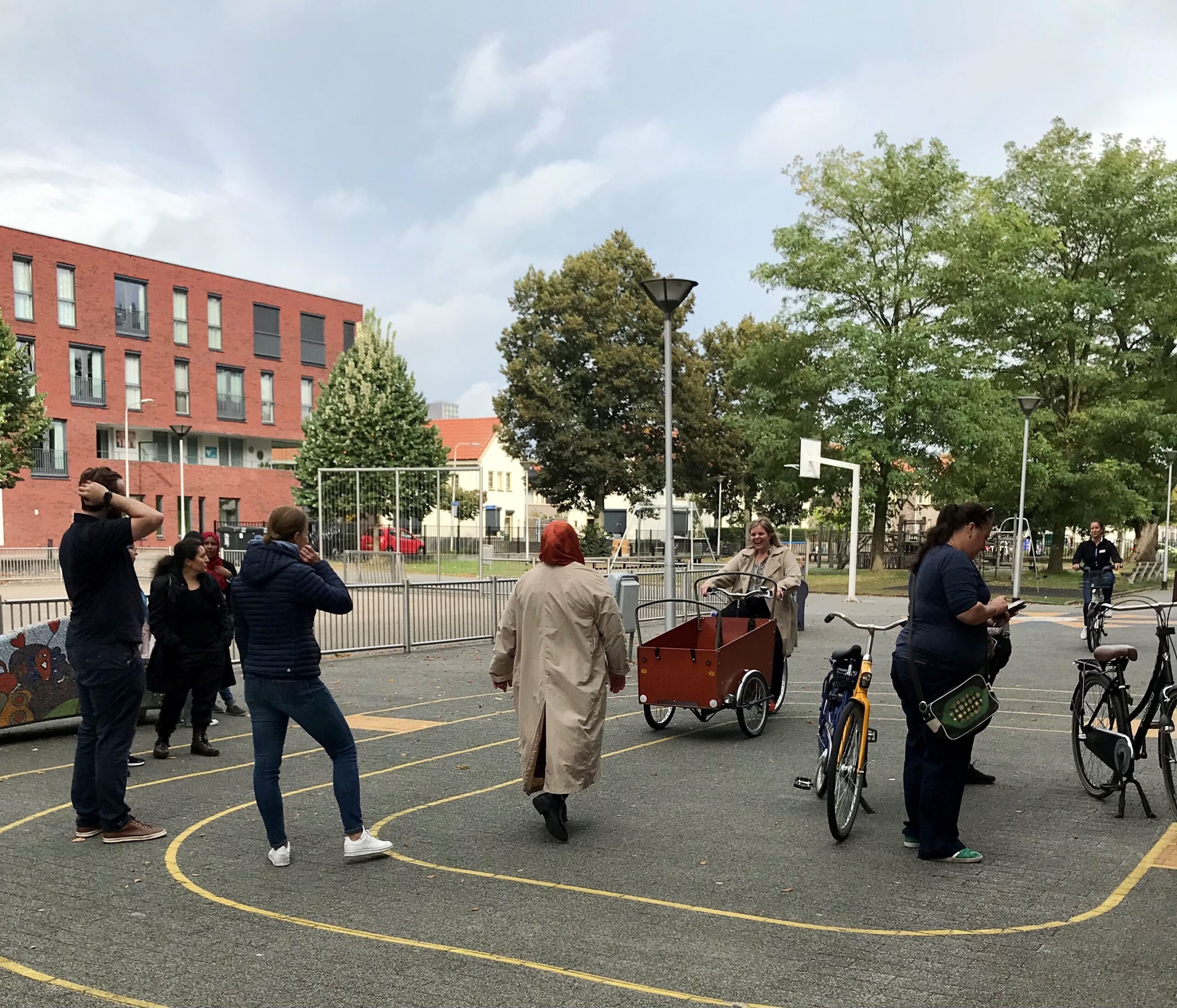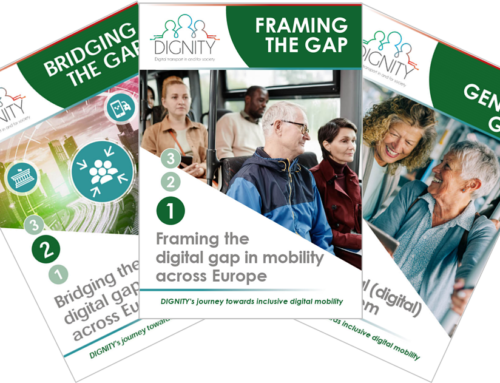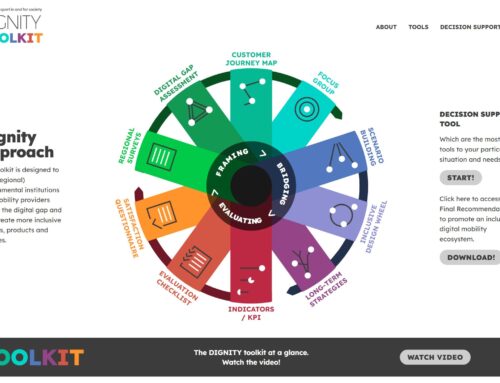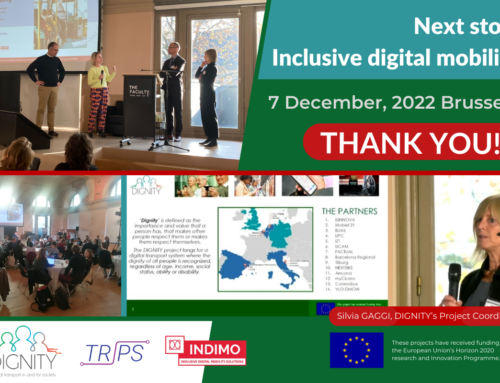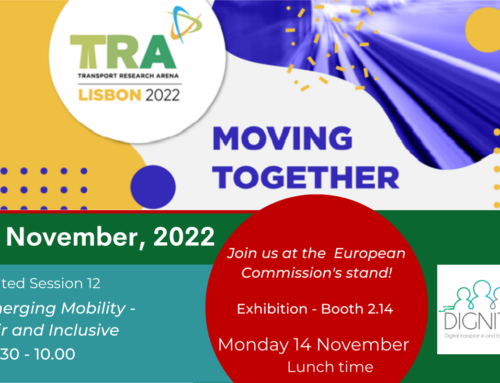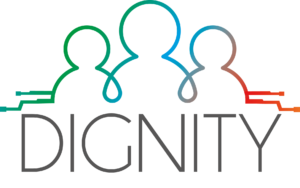Now the DIGNITY project has come to an end, it’s time to inform you about the results Tilburg achieved:
In 2016 we wrote our SUMP: in our SUMP we set goals, by that time we mainly focused on physical aspects. Thanks to the DIGNITY project we started to think about the digital aspect, an eye opener for us.
In DIGNITY we developed our mission: Everybody can travel in Tilburg – mobility 100% accessible! We make this possible by creating solutions in which personal contact remains crucial next to the digital solutions to ensure accessibility for all within the mobility system. In DIGNITY we focused on 4 core activities:
- Policy making:
In our long term strategy policy we’re working on integrating the digital and non-digital mobility goals in social policy and social goals in the mobility policy. We’re bridging these two departments in our municipality and make sure that we embed the social, physical and digital accessibility within the mobility system.
- Mobility market:
A lot of people experience difficulties using the public service card / OV Chipkaart https://bit.ly/3hzfoFy . How to check in and out, how to upgrade the card? People, mainly elderly, feel pressure and don’t feel comfortable to use the card. The experience the card as a barrier for using the public transport. So we organized a mobility market for elderly where they could practice how to use the card. We organized the market in their neighborhood and they got the card for free. A public transport bus arrived, so people got a try out. People were enthusiastic. On this day, we also invited ten mobility providers- such as ANWB Automaatje https://bit.ly/2OvG2z9 and Opstapbus https://bit.ly/3FG1yt4 to show the elderly there’re more mobility alternatives for them.
We also
- Mobility providers overview and helpdesk:
We used the DIGNITY methodology of scenario building & inclusive design workshops and focus groups and found out that although a lot of elderly do have digital skills, some of them don’t. Personal contact is preferred when they need help in finding the right mobility provider or when they have other mobility questions. Especially when they experience unexpected situations f.e. when they travel, there’s a delay and they need to switch from a platform, they don’t relay on their digital skills and want that personal contact with a person who can help them. Together with our local welfare organization we’ve created a phone number to call to, we made a digital and non-digital providers overview and spread it out in Tilburg.


- Bike School:
The Netherlands is a cycling country. It’s an easy, cheap and healthy way to travel to work, family or school and helps people to increase their independence. In collaboration with our project partner Nextbike we organized workshops with migrant women, cycling teachers, organizations and policymakers and found out that women want to learn how to ride a bike. It’s a basic need so with DIGNITY we aimed to solve this problem first, before learning to use digital applications/ products like rent-a-bike. Women see the benefits of riding a bike because usually they travel by foot or bus and that makes them less independent. The problem we’re facing in Tilburg is that we have a waiting list for the lessons, to little teachers and there’s no coordination between the organizations. Our goal is to empower migrant women to ride a bike and thus increase their independence so we organized the Bike School coordination, embedded the cycling instructor training in our sports department and in January the first 10 volunteers will start with this teaching course
The DIGNITY approach helped us to get insights in (digital) mobility problems vulnerable groups experience. The project gave us the opportunity to create and try out solutions which helps us to for fill our mission: Everybody can travel in Tilburg – mobility 100% accessible! We are one step ahead.

